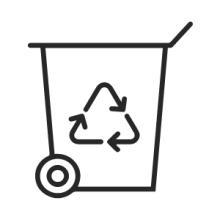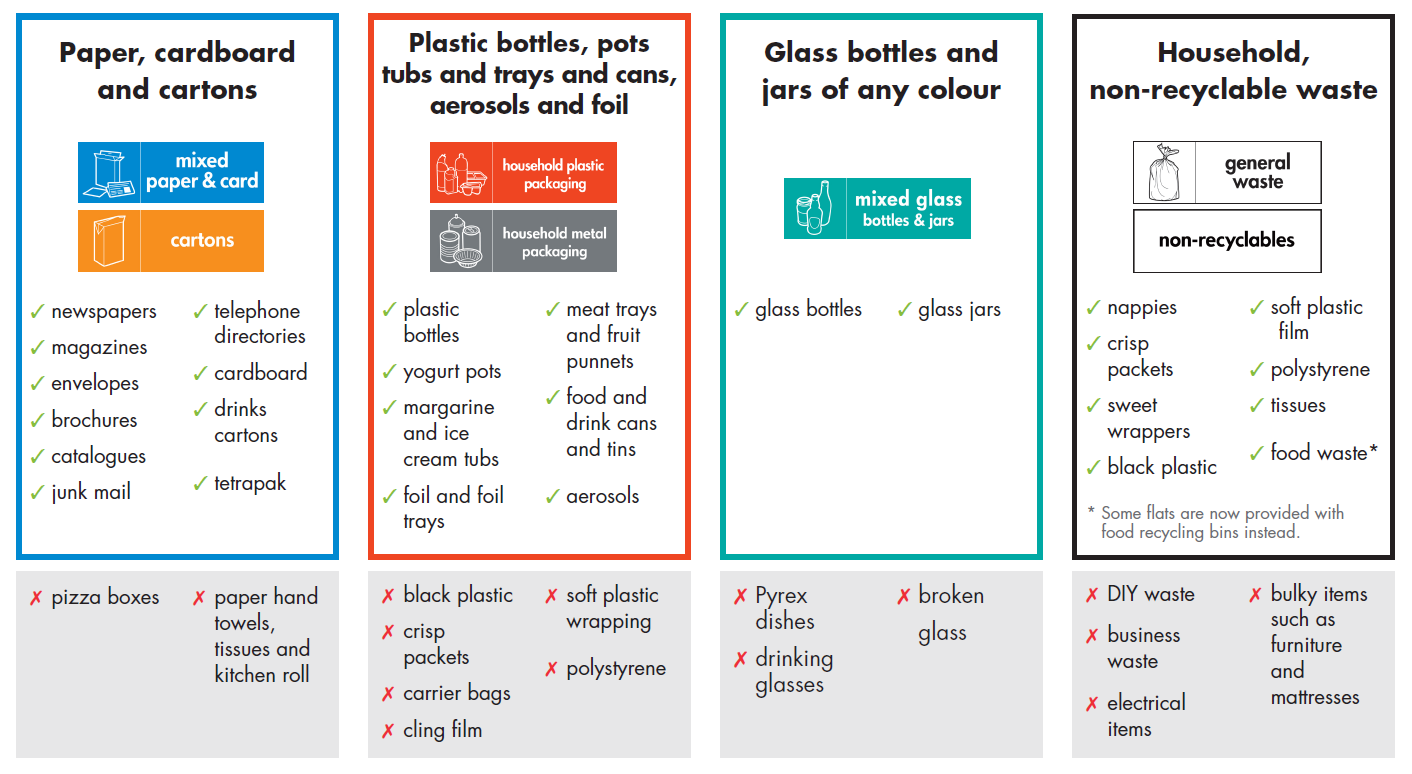As a resident of shared facilities, it is your responsibility to keep certain areas clean and tidy. A few ways you can do this is by:
- putting black sacks of non-recyclable waste inside the general waste bin – don’t leave bags on the floor as they won’t be collected and can block access to emptying the bins. If this happens, your managing agent can charge you to get the bin store cleaned up
- separating items for recycling – this helps to make sure the non-recyclable waste does not overflow
- sorting your recycling into the right bin - the recycling crew may not empty a bin if it’s got too many wrong items inside

